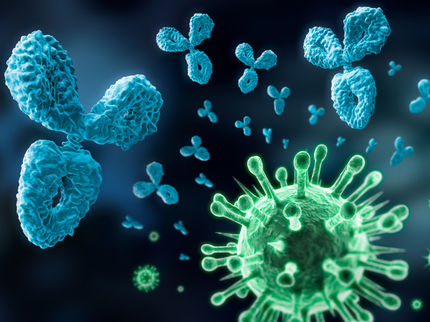New perspectives for development of an RSV vaccine
Advertisement
Respiratory Syncytial Virus causes severe respiratory tract infections and worldwide claims the lives of 160,000 children each year. Scientists at VIB and Ghent University have succeeded in developing a promising vaccination strategy to counteract this common virus infection.
Xavier Saelens (VIB/UGent): “We discovered a new vaccination strategy that paves the way for the development of a novel approach to vaccination against RSV, a virus that causes suffering in numerous small children and elderly people.”
Searching for a RSV vaccine: prevention is better than cure
Previous attempts to develop a vaccine against RSV have failed miserably. A vaccine must prime our immune system so that it can protect us against a pathogen. The starting point in the development of a vaccine is usually the proteins that are present on the outside of the virus. Many scientists and pharmaceutical companies are targeting the two large envelope proteins - F and G - in the development of a RSV vaccine, but these approaches are have yet to prove clinical benefit against disease caused by RSV.
Bert Schepens, Xavier Saelens and Walter Fiers (VIB/UGent) searched for an alternative strategy to attack the virus. They focused on a small, seemingly insignificant envelope protein of RSV, the so-called Small Hydrophobic protein (SHe). The immune system barely notices this viral protein during an infection with RSV. Therefore, the scientists linked the extracellular part of SH to another molecule. The resulting SHe conjugate did induce antibody production in laboratory animals.
New vaccine offers protection in lab animals
The SHe-specific antibodies do not neutralize RS virus in vitro. However, mice that were vaccinated with the SHe vaccine were protected against a challenge with the virus. The growth of RSV in the lung tissue of the vaccinated animals was significantly reduced and the animals did not become ill. The experiments were repeated in cotton rats as these animals are naturally more sensitive to RSV infections. The positive results were confirmed: pretreatment with the SHe-vaccine suppressed the replication of RSV in the lung tissue of the infected cotton rats.
Surprising mechanism of action
As no neutralizing antibodies were induced, the vaccine must offer protection via a different mechanism. The scientists also unraveled this mechanism. The SHe-specific antibodies stimulate macrophages (cells that absorb foreign particles) in the respiratory tract to such an extent that they selectively ingest (phagocytose) the virus-infected cells.
Bert Schepens (VIB/UGent): “This alternative approach to battle RSV has never been studied before and this is exactly the pathway that is triggered by the new candidate vaccine. The SHe-based vaccine could be linked to other candidate vaccines directed against the larger envelope proteins of the virus, to double hit the virus: with neutralizing antibodies in addition to antibodies that stimulate macrophages to selectively eliminate infected cells”.
Original publication
. Bert Schepens, Koen Sedeyn, Liesbeth Vande Ginste, Sarah De Baets, Michael Schotsaert, et al. ; "Protection and mechanism of action of a novel human Respiratory Syncytial Virus vaccine candidate based on the extracellular domain of Small Hydrophobic protein."; EMBO Molecular Medicine
Other news from the department science
Most read news
More news from our other portals
See the theme worlds for related content
Topic world Antibodies
Antibodies are specialized molecules of our immune system that can specifically recognize and neutralize pathogens or foreign substances. Antibody research in biotech and pharma has recognized this natural defense potential and is working intensively to make it therapeutically useful. From monoclonal antibodies used against cancer or autoimmune diseases to antibody-drug conjugates that specifically transport drugs to disease cells - the possibilities are enormous

Topic world Antibodies
Antibodies are specialized molecules of our immune system that can specifically recognize and neutralize pathogens or foreign substances. Antibody research in biotech and pharma has recognized this natural defense potential and is working intensively to make it therapeutically useful. From monoclonal antibodies used against cancer or autoimmune diseases to antibody-drug conjugates that specifically transport drugs to disease cells - the possibilities are enormous

























































